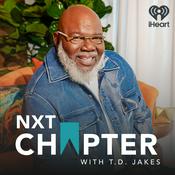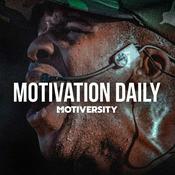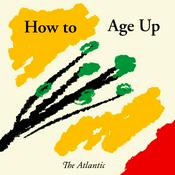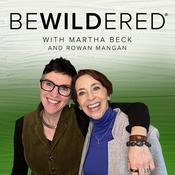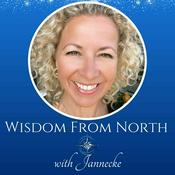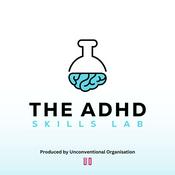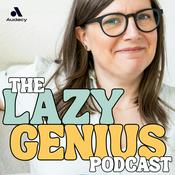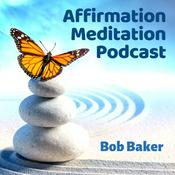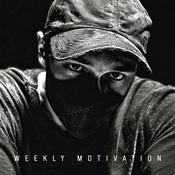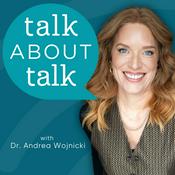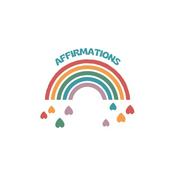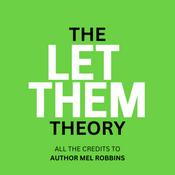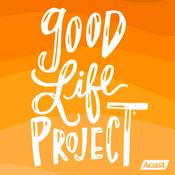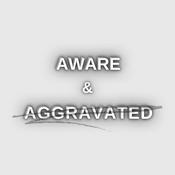Available Episodes
5 of 113
- Dr Gillian Tabor explores Bioresonance and the Science Behind the ClaimsBioresonance (sometimes called bio-energetic therapy or bio-frequency therapy) is an alternative or complementary therapy based on the idea that every cell, tissue, or organ in the body emits its own electromagnetic frequency or “vibration.” Devices are sold for placement on the skin (or, for animals, sometimes attached to the coat), and the devices measure electrical signals, analyse their “frequencies,” and emit counterfrequencies supposedly intended to cancel or correct the imbalance.With her characteristic clarity and curiosity, Gillian explores why bioresonance sounds plausible in theory. She also discusses legitimate areas of electromagnetic therapy, such as PEMF and photobiomodulation, and calls for proper research to separate real physiological effects from pseudoscientific claims.Whether you’ve seen these devices online, been recommended one, or are simply curious about the science behind them, this episode is an essential listen for any evidence-minded equestrian or therapist.----To find out more about becoming a member >>> AskAnimalweb.comNot a Member? Join for as little as £6 a month or £8 on a month-by-month basis to access all the test results and have a say in what we test and investigate next. For this, you also get access to all past and future webinars, videos, podcasts, and articles, the opportunity to take part in testing and research and SOOOO much more. Hosted on Acast. See acast.com/privacy for more information.--------20:22
- Creating a Happy Riding School - Dr David Marlin chats with Anne PriceIn this conversation, Dr David Marlin speaks with Annie Price, who runs a riding school in Somerset. They discuss the importance of creating a positive and supportive environment for riders, particularly those with mental health challenges. Annie shares her experiences of fostering individual growth in riders, addressing bullying, and the cultural differences in equestrian training between Germany and the UK. They emphasise the need for leadership in riding schools to cultivate a happy atmosphere for both riders and horses, and explore innovative teaching methods that prioritise enjoyment and personal development over competition.Discussion Points:Creating a supportive environment is crucial for rider development.Cultural differences impact the approach to equestrian training.Individual growth should be prioritised over competition.Mental health awareness is essential in riding schools.Leadership plays a key role in shaping the culture of riding schools.Innovative teaching methods can enhance the learning experience.Building a community fosters confidence and camaraderie among riders.Addressing bullying promptly is necessary for a healthy environment.Happy riders contribute to the well-being of horses.A positive atmosphere leads to a thriving equestrian business.Find out more about YardWise - yardwise.co.ukIn an industry so vital to equine welfare, yard owners are too often left to figure things out alone. With rising costs, growing client demands, and no real regulation or support, it’s no wonder many feel overwhelmed. YardWise was created to change that.It’s not just a day out—it’s a practical, in-person event offering real guidance, expert insights and workshops, and a space to connect with others facing the same challenges. From legal and employment advice to welfare and business best practices, it’s tailored for livery yard, riding school, and equestrian centre owners who want to do better—and stand out for it.Whether you're just starting or have run a yard for years, YardWise is your chance to learn, connect, and be part of a movement that’s raising the standard and protecting the future of the industry.Join the Yard Owners who have already bought their tickets... Limited tickets available on a first come, first served basis. ----To find out more about becoming a member >>> AskAnimalweb.comNot a Member? Join for as little as £6 a month or £8 on a month-by-month basis to access all the test results and have a say in what we test and investigate next. For this, you also get access to all past and future webinars, videos, podcasts, and articles, the opportunity to take part in testing and research and SOOOO much more. Hosted on Acast. See acast.com/privacy for more information.--------47:56
- Rider in Balance with Maria Terese EngellIn this relaxed conversation, expert vet and rider biomechanics specialist Maria Terese Engel joins Animalweb to discuss her groundbreaking research into rider asymmetry and movement patterns. Drawing on her unique background in both veterinary medicine and ballet, Maria shares insights from her current studies and the upcoming international launch of the Rider in Balance Academy.She explains how improving rider awareness and technique off the horse can dramatically change riding performance in just six weeks. From Olympic riders to grassroots amateurs, Maria’s methods centre on building precise body awareness and correcting long-held movement habits. This episode is packed with practical takeaways, especially for anyone striving to ride more sympathetically, improve balance, or avoid unnecessary pressure on the horse.Watch Maria's previous webinar and videos with Animalweb here:Webinar – Rider Balance with Dr Maria Terese EngellVideo – David meets Dr Maria Terese Engell – AAEP Convention ----To find out more about becoming a member >>> AskAnimalweb.comNot a Member? Join for as little as £6 a month or £8 on a month-by-month basis to access all the test results and have a say in what we test and investigate next. For this, you also get access to all past and future webinars, videos, podcasts, and articles, the opportunity to take part in testing and research and SOOOO much more. Hosted on Acast. See acast.com/privacy for more information.--------30:18
- Introducing YardWise – A New Event for Yard ProfessionalsIntroducing YardWise – A New Event for Yard ProfessionalsIn this special episode of the Animalweb podcast, Helen Stock is joined by Amanda Watson (Equestrian Index) and Cheryl Johns (LiveryList) to introduce YardWise, a brand-new event tailored specifically for livery yard and riding school professionals. The event, taking place on 19 November 2025 at Warwick Trident College, Leamington Spa, is designed to be practical, collaborative, and solution-focused, offering attendees a rare chance to access top industry experts in one place.Helen, Amanda, and Cheryl share the story behind YardWise, a collaborative effort driven by a shared passion for supporting yard owners and addressing the real-world challenges they face. From welfare and insurance to biosecurity, legal guidance, employment, sustainability, and communication skills, YardWise will tackle the everyday issues that affect yard businesses, with expert-led roundtables and tailored support.🗓️ YardWise 2025 – Key Details📍 Location: Warwick Trident College, Leamington Spa📅 Date: 19 November 2025💷 Price: £95 (includes lunch, refreshments, and all workshops)🎓 CPD: BHS Accredited Professionals receive 6 CPD points🔗 Tickets & Info: yardwise.co.uk💡 Key TakeawaysNot a conference – a workshop-based experience: No long lectures. Attendees will join small group roundtables with leading experts to discuss the issues that matter most to them.Bring your pain points: YardWise is designed to provide real solutions. Attendees are encouraged to arrive with 3–4 key problems they want to solve.Expert line-up includes:Dr David Marlin & Amanda Stoddart-West (Welfare & Welfare Stewarding)Rebecca Stojak (Equine Solicitor – Geldards)Nick de Brauwer & Helen Whitelig (Redwings)SEIB Insurance TeamLizzie Herron (Equestrian Leadership & Communication)Lucy Catan MBE (Code of Good Employment)Claire Shand & Sarah (Worming & Parasite Control)Catherine Chapman (Accountancy & VAT)White Griffin (Equestrian Environmental Sustainability)Gail Eggington (Biosecurity – Ag+)Jane Patching & Leanne Kelly (Health & Safety – IMG)Livery Live (Yard Tech Solutions)British Horse Society (Business Support)Inclusive and tailored: Relevant for all yard professionals – livery yards, riding schools, mixed yards – no matter your size or experience.Networking and community-building: A much-needed opportunity for professionals who often work in isolation to connect, learn, and build stronger businesses.Hospitality by Bedmax & Strawmax: Expect more than a sandwich – attendees will be well looked after!🔗 Additional InfoWebsite: YardWise.co.ukFacebook: YardWise Facebook PageLinkedIn: YardWise on LinkedIn Hosted on Acast. See acast.com/privacy for more information.--------45:37
- Meet Rachel Bean – Vet Nurse, Educator & Global Canine Welfare AdvocateMeet Rachel Bean – Vet Nurse, Educator & Global Canine Welfare AdvocateIn this episode, we welcome Rachel Bean, a highly experienced Registered Veterinary Nurse, canine first aid trainer, and passionate animal welfare advocate. Rachel joins the Animalweb expert panel and shares her incredible journey, from her early days at the Dogs Trust to working across the globe with street dogs and wildlife detection teams.We talk about:How she helps owners choose the right dog and avoid common behavioural issuesThe importance of proper canine first aid training – and why regulation is urgently neededHer international work in places like Thailand, Kenya, Sri Lanka, and the OrkneysHer latest project working with anti-poaching sniffer dogs in ZimbabweHer growing passion for wildlife photographyHer mission to improve animal welfare standards on film and TV sets in the UKWhether you're a dog owner, pet professional, or just animal curious, this episode is full of useful advice, real stories, and inspiration.----To find out more about becoming a member >>> AskAnimalweb.comNot a Member? Join for as little as £6 a month or £8 on a month-by-month basis to access all the test results and have a say in what we test and investigate next. For this, you also get access to all past and future webinars, videos, podcasts, and articles, the opportunity to take part in testing and research and SOOOO much more. Hosted on Acast. See acast.com/privacy for more information.--------33:30
More Education podcasts
Trending Education podcasts
About Stable Science from Dr David Marlin's Animalweb
STABLE SCIENCE is a must to promote the health, well-being and performance of all horses. Dr David Marlin’s Animalweb offers a straightforward approach to challenges, disrupting and reshaping the outdated equestrian education many of us have grown up with.Along with a mighty team of experts, David is helping all horse owners, riders and breeders achieve optimal performance for their much-loved horses, horses are living healthier, happier, longer lives by using the latest that science and technology can give us.AskAnimalweb.com is an independent resource website for all equestrians. A source of unbiased, science-based research, delivering news, product reviews, webinars, podcasts and articles covering the full breadth of the equine world. Hosted on Acast. See acast.com/privacy for more information.
Podcast websiteListen to Stable Science from Dr David Marlin's Animalweb, The Mel Robbins Podcast and many other podcasts from around the world with the radio.net app
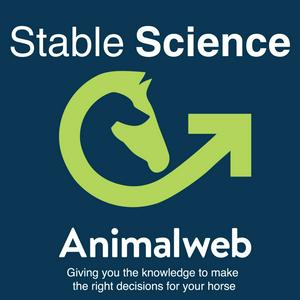
Get the free radio.net app
- Stations and podcasts to bookmark
- Stream via Wi-Fi or Bluetooth
- Supports Carplay & Android Auto
- Many other app features
Get the free radio.net app
- Stations and podcasts to bookmark
- Stream via Wi-Fi or Bluetooth
- Supports Carplay & Android Auto
- Many other app features


Stable Science from Dr David Marlin's Animalweb
Scan code,
download the app,
start listening.
download the app,
start listening.





